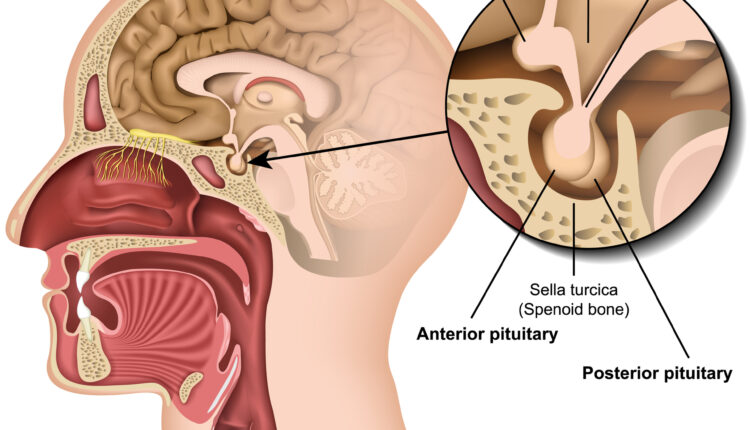The Pituitary Gland: A Tiny Powerhouse
Often referred to as the “master gland,” the pituitary is a pea-sized organ located at the base of the brain. Despite its small size, it plays a pivotal role in regulating various bodily functions by secreting hormones. One of the conditions affecting the pituitary is a pituitary adenoma, a benign tumor. Recognizing pituitary adenoma symptoms can be the key to early detection and effective management.
Symptoms can vary based on the size and location of the adenoma. They might include headaches, vision problems, or hormonal imbalances, which can manifest in a myriad of ways, from fatigue to mood swings.
Hormonal Harmony and Disruption
The pituitary gland releases a range of hormones that influence growth, blood pressure, energy management, and more. When functioning correctly, these hormones maintain a delicate balance in our body. However, disorders like pituitary adenomas can disrupt this harmony.
An overproduction or underproduction of hormones can lead to conditions like Cushing’s disease, acromegaly, or hypopituitarism. Each of these conditions presents its set of challenges and symptoms, emphasizing the importance of the pituitary’s role in overall health.
Diagnosis and Treatment Options
Diagnosing pituitary disorders requires a combination of physical examinations, blood tests, and imaging studies. MRI scans, in particular, can be instrumental in visualizing the size and location of pituitary tumors.
Treatment options vary based on the type and severity of the disorder. They can range from medication and hormone replacement therapy to surgical interventions. Regular monitoring and follow-ups are crucial to ensure the effectiveness of the treatment and make necessary adjustments.
Living with a Pituitary Disorder
Being diagnosed with a pituitary disorder can be overwhelming. However, with the right care and support, many individuals lead full, healthy lives. It’s essential to maintain regular doctor visits, adhere to prescribed treatments, and be vigilant about any changes in one’s health.
Support groups and counseling can also be beneficial, offering a platform to share experiences, gain insights, and cope with the emotional aspects of living with a pituitary disorder.
Prevention and Awareness
While not all pituitary disorders can be prevented, awareness is the first step towards proactive health management. Being informed about potential risk factors, recognizing early signs, and seeking timely medical advice can make a significant difference.
Regular health check-ups, especially if there’s a family history of pituitary disorders, can aid in early detection. Additionally, leading a healthy lifestyle, managing stress, and staying informed about one’s health can reduce the risk of complications.
The Intricacies of the Human Body
The pituitary gland, though small, underscores the intricacies and marvels of the human body. Its role in regulating various functions serves as a reminder of the interconnectedness of our bodily systems. By understanding the significance of the pituitary and the disorders that can affect it, we can better appreciate the delicate balance that keeps our bodies running smoothly.
Knowledge, vigilance, and a proactive approach to health are essential tools in navigating the challenges posed by pituitary disorders. With the right information and care, one can lead a fulfilling life while managing and overcoming these challenges.


Comments are closed.